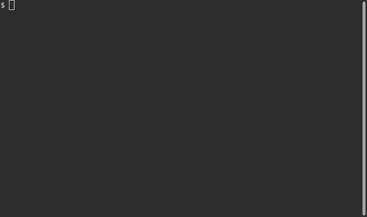-
Here's what Fuchsia looked like in 2018. This is the home screen in phone mode.Ron Amadeo
-
The home screen in laptop mode.Ron Amadeo
-
Pressing the center Fuchsia button opens up a quick-settings panel. The only control here that actually works is "logout."Ron Amadeo
-
At the bottom is a "Google" search bar, which doesn't search Google. It shows fake suggestions and returns local results like apps.Ron Amadeo
-
Type in a URL and Fuchsia will attempt to render a webpage. It's bad at it.Ron Amadeo
-
Here's a results screen in laptop mode.Ron Amadeo
-
Recent apps appear at the top of the screen.Ron Amadeo
-
Recent apps in phone mode.Ron Amadeo
-
Scrolling up will minimize the other UI elements.Ron Amadeo
-
You can drag thumbnails together for split-screen modes.Ron Amadeo
-
Here's side by side.Ron Amadeo
-
Split-screen mode in action.Ron Amadeo
-
Tap on the time to change the time zone.Ron Amadeo
-
This totally nonfunctional app mockup shows a phone app.Ron Amadeo
-
This is just a picture of a website.Ron Amadeo
-
A picture of Google calendar.Ron Amadeo
-
Time for some stuff that actually works! This file manager will actually give you a list of apps, which we tried running.Ron Amadeo
-
These blocks will scroll by forever.Ron Amadeo
-
A video app! It doesn't work.Ron Amadeo
-
Whatever this is looks terrible. The left side doesn't do anything. The right side will scroll, and tapping on the video will launch a black video screen.Ron Amadeo
-
A spinning cube.Ron Amadeo
-
A very broken music app.Ron Amadeo
-
This is "dashboard," some kind of testing app.Ron Amadeo
-
This is "Capybara," which is (was?) supposed to be a desktop-centric user shell.Ron Amadeo
-
It can launch white option screens like this and not much else.Ron Amadeo
Google's super secret, experimental in-development operating system, Fuchsia, is still alive. Google recently put out a blog post titled "Expanding Fuchsia's open source model" announcing that the company is now accepting public contributions and bug fixes for whatever this OS ends up being. There is now a public mailing list, a public bug tracker, and even a roadmap.
Google says it has "been developing Fuchsia in the open, in our git repository for the last four years." That's not quite how I would describe the development process. After we compiled Fuchsia and got it running on a Pixelbook, the Fuchsia team scrubbed the repo of the user interface. I would guess Fuchsia has a similar setup to Android, with a public-facing repository full of the bits Google is willing to disclose, and a private repo where all the interesting stuff happens. Either that or Google has done zero interface work in the last two years, and Fuchsia development is slower than anyone was expecting—I don't see any user interface code in the repo. There is a public bug tracker, but many of the bugs are labeled "Restrict-View-Google" and are not visible to non-employees.
The blog post includes what might be the first official picture of Fuchsia: a thrilling gif of a command line running a "Hello World" app:

Google does seem like it's bringing Fuchsia and Android closer together. It's possible to get Fuchsia running in the Android Emulator. Google is also working on Android app support for Fuchsia, via a port of the Android Runtime (ART). The new roadmap paints a picture of an OS that is still in the "exploratory" phase. The Fuchsia team is "actively exploring" how various parts of Fuchsia talk to each other, spinning up a "version 2" of several core components and "evaluating potential improvements" for the file system.
Google took five years to develop Android, and back then the company started with Linux and was in a rush to produce some kind of answer to the iPhone. Today, Google has roughly 85 percent of the smartphone market share, so there's no reason to rush. Fuchsia is building its own kernel, which is way more complicated than starting from Linux. If we give Fuchsia development at least as long as Android, we would see something substantial from the OS in 2021. Coincidentally, 2021 is also when Bloomberg claims Fuchsia will first hit the market, via simpler products at first, like a smart speaker. The same report says the plan to replace Android is pegged sometime before 2023.
Listing image by Ron Amadeo
"open" - Google News
December 10, 2020 at 02:37AM
https://ift.tt/3m5x7QW
Google’s secretive Fuchsia OS is open for contributions - Ars Technica
"open" - Google News
https://ift.tt/3bYShMr
https://ift.tt/3d2SYUY
Bagikan Berita Ini














0 Response to "Google’s secretive Fuchsia OS is open for contributions - Ars Technica"
Post a Comment